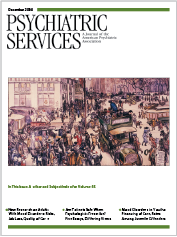Therapy and Body Double offer contrasting approaches to the mystery novel. In Therapy, the hero is a psychological consultant to the Los Angeles Police Department and consequently is somewhat removed from the action. The plot is an intellectual and psychological puzzle to be sorted out over dinner—although, to be fair, the hero does participate in interviews of assorted suspects, bringing his clinical expertise to the endeavor.
In Body Double, the heroine, a medical examiner, is quickly involved as a suspect-victim. Her past, her future, and ultimately her life are bound to the solution of the danger that surrounds her. This twist brings intensity to the action that is not found in Therapy. By itself, this contrast does not make one novel better than the other. However, I believe it puts the onus on a mystery that is primarily a puzzle to be clever and intellectually charged.
In Therapy, Kellerman's Alex Delaware is a psychological consultant to agencies, courts, and the police. His friend, Milos Sturgis, a homicide detective, calls him in when a young couple is found murdered in a lovers' lane. Each has been shot in the head. The girl has a metal spike plunged through her chest. The fury of the vicious act suggests that the police are heading into Delaware territory.
The dead young man is Gavin Quick, a 20-year-old college dropout who has had personality and mental acuity changes since a car accident and subsequent brain injury a year earlier. The attractive, if slightly "trashy," young woman remains unidentified for a good part of the book.
Gavin's family does not know the girl, which suggests to Delaware that perhaps she wasn't the kind of girl you would bring home to meet mother. And this could mean she was the primary target. Delaware makes this and similar interpretations throughout the book. Although most of the interpretations turn out to be helpful in solving the case, I found them to be overreaching—other equally valid explanations are not explored.
Gavin was in therapy with a celebrity psychologist, someone who is featured frequently on radio and television talk shows. The therapy was presumably focused on Gavin's adjustment to his changed mental status, but the therapist reveals nothing. Secrets abound. The number of characters involved expands quickly: Gavin's family and the psychologist's associates as well as their spouses, ex-husbands, cleaning people, old girlfriends, and old boyfriends. None of these individuals are engaging or make us want to know more about them or even care what happens to them.
The plot, too, fails to engage us. By the end of the novel Kellerman has covered stalking, insurance fraud, prison reform, halfway houses, human rights, and African "misery pimps." It is a smorgasbord of issues that would fail to please anyone's palate.
Jonathan Kellerman's popular mystery series has generally been well regarded, but I have found the last several to be very disappointing. To become familiar with a true genius of puzzle mysteries, readers are urged to try any of Rex Stout's only slightly dated mysteries with the orchid-growing Nero Wolfe as detective.
Body Double is a foray into a recently popular plot twist involving the appearance of the heroine's previously unknown identical twin—sometimes dead and sometimes alive. Lisa Scottoline's Mistaken Identity and Judy Mercer's Fast Forward are two recent examples. In Gerritsen's story, medical examiner Maura Isles returns from a conference in Paris stunned at the gathering of police officials and neighbors in front of her home. As Detective Jane Rizzoli steps aside to let her see the body, Isles realizes why everyone has been gaping at her. The corpse is her double.
The body is that of Anna Jessup, and it is soon established that the two are twins, each adopted by a different family at birth. The question is who, exactly, is Jessup, and which of them was the intended victim? A detective, Rick Ballard, comes forward convinced that Jessup was killed by her lover, a pharmaceutical baron, who abused her and jealously stalked her after she left him. Ballard had assisted Jessup with her "disappearance" into a town in Maine after anonymous threats suggested there might be a deadly ending. Ballard's intense involvement makes Isles wary, but at the same time she senses a personal chemistry.
Sprinkled among the chapters on Isles and her sister's murder is a parallel subplot, seemingly unrelated, of a young pregnant woman who has been kidnapped and kept entombed alive in a coffin-like box.
Unconvinced by Ballard's theory, Isles travels to Maine to retrace her sister's recent past. While she is ensconced in the cottage that Jessup had rented, human bones are found buried nearby in the woods. Ultimately these bones lead to the discovery of a series of bizarre disappearances across the country. The disappearances guide Isles to her birth mother, and the two plots start to converge. There is a nice interplay of approaches as Isles searches for her own identity and Detective Rizzoli follows police procedure.
The characters are engaging and vulnerable, although Isle's stiffness and isolation seem exaggerated. The plot is both hellish and creepy. The many strands come together and despite the complexity form a cohesive story. And just when everything appears to be tied together in a neat package, Gerritsen gives you the final shocker, and you wonder whether you should have seen it coming.

